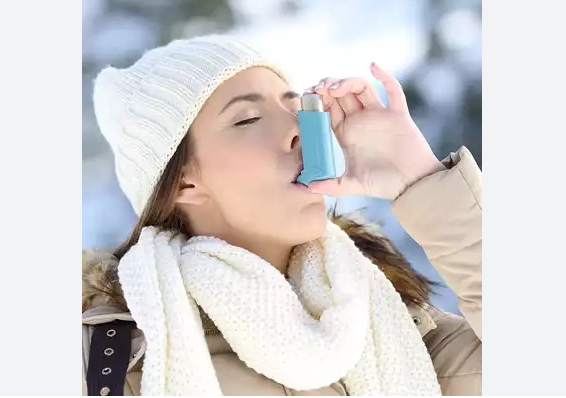If you suddenly feel like your asthma has gotten worse as the months have gotten colder, you’re not wrong! Asthma symptoms are often exacerbated in winter. Partly this is due to the colder temperatures and drier air. Sudden shifts in weather play a role too with heavy winds and temperature changes. Worsening asthma in winter in a real problem!

The colder drier air causes your airways to produce more mucus. Asthma suffers are already dealing with inflamed airways. The irritation of those airways drying out and the added mucus production that causes can lead to a tighter chest, wheezing, and inflammation.
Your asthma in winter symptoms won’t vary much from your regular asthma symptoms. However, they may be more severe or harder to control. Watch for:
- Chest pain
- Coughing
- Shortness of breath
- Tightness in the chest
- Wheezing
Use the following tips to help prevent an attack of asthma in winter.
- Drink lots of water, brothy soups and herbal teas to stay hydrated.
- Wash your hands often in soap and water to prevent COVID, the flu, and various colds.
- Dress warmly when you go out. Keep a scarf, gloves and extra jacket in your car just in case.
- Breathe through your nose when you’re outside. Your nasal passages warm the air before it moves into your lungs.
- Get the flu vaccine, which will lower your risk of getting this year’s flu.
- Carry your inhaler with you all the time.
- Find alternative ways to exercise if you usually exercise outdoors. Make sure the place where you exercise has good air circulation.
- Use a humidifier indoors, especially at night when you sleep.
- Keep up with your daily asthma medications and refilling them, and do not skip doses.
- If you know you’re prone to winter month attacks, make a plan with Dr. Hallett.